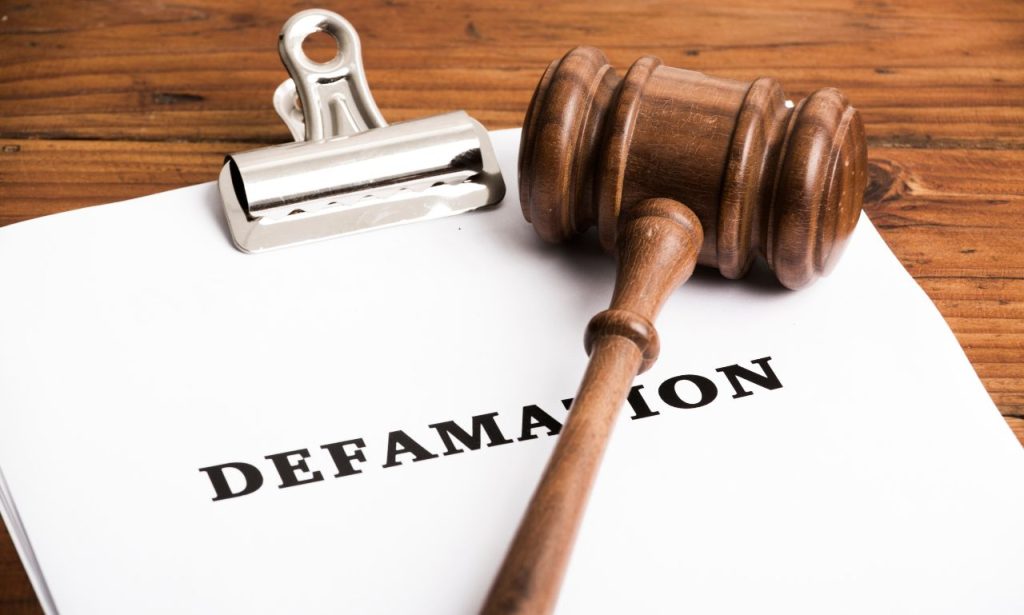Imagine this: You’re going about your life, working hard, and trying to maintain a positive reputation. Suddenly, you discover that someone is spreading vicious lies about you online, tarnishing your good name. You feel helpless, angry, and unsure of what to do next. In this article, we’ll guide you through the steps you can take to legally stop someone from spreading lies about you and protect your reputation.
Understanding Defamation
Before we dive into the actionable steps, it’s essential to understand what constitutes defamation. Defamation is a false statement presented as fact that injures a person’s reputation. It can take two forms: libel (written) or slander (spoken). For a statement to be considered defamatory, it must meet the following criteria:
1. The statement is false
2. The statement is communicated to a third party
3. The statement causes harm to the person’s reputation
Keep in mind that opinions, no matter how negative, are generally protected by the First Amendment and do not qualify as defamation.
How to Build Your Defamation Case?

To build a strong defamation case, you’ll need to gather evidence that supports your claim. This may include:
1. Screenshots of the false statements
2. Witness testimony from individuals who have seen the defamatory content
3. Documentation of any harm caused by the false statements (e.g., loss of employment, damaged relationships)
It’s also important to establish that the person spreading the lies acted with negligence or malice. Negligence means they failed to take reasonable care to verify the truth of their statements, while malice implies they knew the statements were false but shared them anyway.
Steps to Legally Stop Someone From Spreading Lies About You
1. Report the Account to the Social Media Platform
If the lies are being spread on social media, your first step should be to report the offending account to the platform. Most social media platforms have policies against harassment and defamation. Provide evidence of the false statements and request that the content be removed.
2. Preserve Evidence of the False Content & Statements
Before taking any further action, make sure to preserve evidence of the false statements. Take screenshots of the defamatory posts, comments, or messages. If possible, use a tool that captures the URL, date, and time of the content. This evidence will be crucial if you decide to pursue legal action.
3. Stay Composed
When someone is spreading lies about you, it’s natural to feel angry and frustrated. However, it’s essential to remain calm and composed. Avoid engaging with the person or retaliating with your own negative statements. This could potentially weaken your case and make you appear less credible.
4. Protect Your Reputation From Lies
While you’re working on stopping the spread of lies, take proactive steps to protect your reputation. Engage in positive PR by sharing your accomplishments, volunteering in your community, and building a strong network of supporters. The more positive content there is about you online, the less impact the lies will have on your overall reputation.
5. Send a Cease & Desist Letter or Retraction Demand
If the person spreading lies about you is unresponsive to your initial attempts to resolve the situation, consider sending a cease and desist letter or a retraction demand. A cease and desist letter is a formal request for the individual to stop their defamatory behavior, while a retraction demand asks them to publicly acknowledge their statements were false.
These letters should be drafted by an experienced defamation attorney and sent via certified mail. They serve as a warning that legal action may follow if the behavior continues.
6. Utilize Content Removal or Suppression Services
In some cases, you may benefit from working with a content removal or suppression service. These companies specialize in helping individuals and businesses remove negative content from the internet. They may use a combination of legal tactics, negotiation, and SEO strategies to minimize the visibility of the false statements.
Keep in mind that these services can be costly and are not always guaranteed to be successful. It’s important to do your research and choose a reputable service with a track record of success.
7. File a Defamation Lawsuit Against the Person Behind the Lies

If all other attempts to stop the spread of lies have failed, your final option is to file a defamation lawsuit against the person responsible. This is a serious step that should not be taken lightly. Defamation lawsuits can be time-consuming, expensive, and emotionally draining.
To succeed in a defamation lawsuit, you’ll need to prove the following elements:
1. The statement was false
2. The statement was communicated to a third party
3. The statement caused you harm
4. The person making the statement acted with negligence or malice
If you win your defamation lawsuit, you may be awarded damages for the harm caused to your reputation, such as loss of employment or emotional distress. In some cases, the court may also order the defendant to remove the false statements and issue a public retraction.
Conclusion
Dealing with someone spreading lies about you can be a nightmare, but you don’t have to face it alone. By understanding your legal rights and taking strategic action, you can stop the spread of false information and protect your hard-earned reputation. Remember to document everything, stay composed, and seek the guidance of an experienced defamation attorney if necessary.
While the process of legally stopping someone from spreading lies about you can be challenging, it’s important to stand up for yourself and your reputation. With persistence and the right approach, you can emerge from this difficult situation with your integrity intact.
ALSO READ: Law Firm Social Media Post Ideas
FAQs
Yes, you can sue someone for defamation if they are spreading false statements about you on social media platforms. However, it’s essential to consult with an attorney to determine if your case meets the legal requirements for defamation.
The statute of limitations for defamation lawsuits varies by state. In some states, you may have as little as one year from the date of publication to file a lawsuit, while others allow up to three years. It’s crucial to act quickly and consult with an attorney to ensure you don’t miss your window to take legal action.
Suing an anonymous individual for defamation can be more challenging, but it’s not impossible. You may need to file a “John Doe” lawsuit and subpoena the internet service provider or website to obtain the identity of the anonymous poster. An experienced defamation attorney can guide you through this process.
If the person spreading lies about you lives in a different state, you may need to file your lawsuit in that state and hire a local attorney. If they live in a different country, the process can be even more complex, as defamation laws vary widely by nation. In some cases, you may need to rely on international treaties or work with attorneys in multiple countries to resolve the issue.




